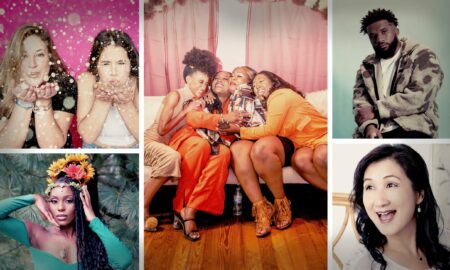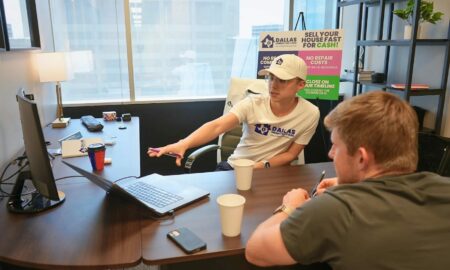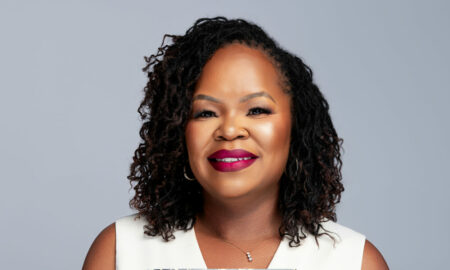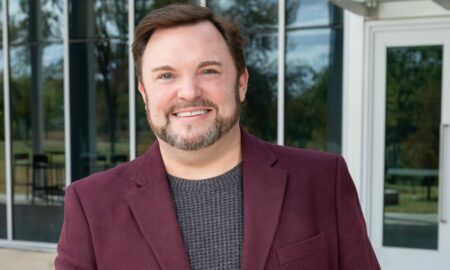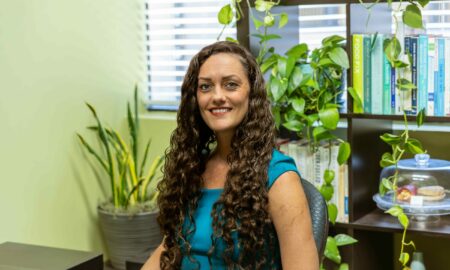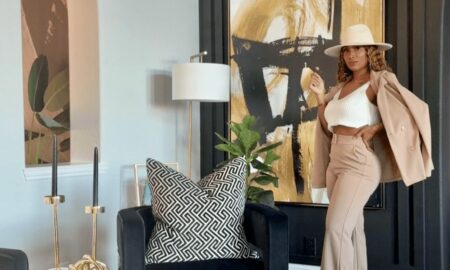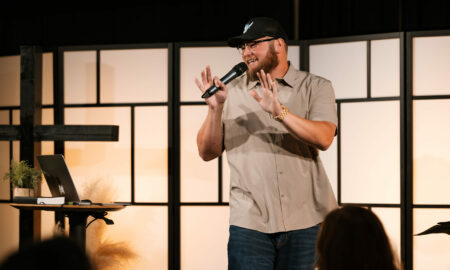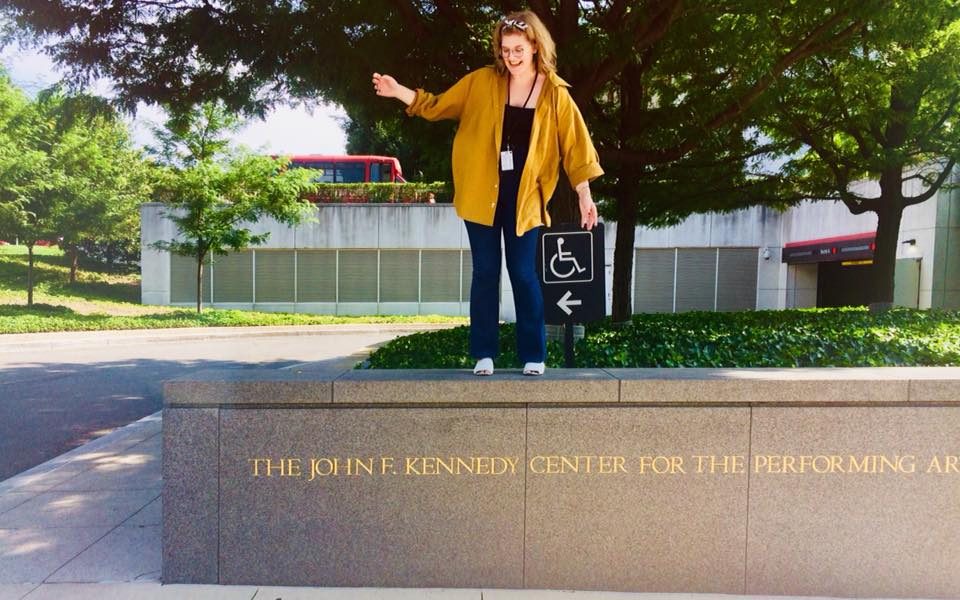

Today we’d like to introduce you to Haley Nelson.
Haley, we’d love to hear your story and how you got to where you are today both personally and as an artist.
I grew up in Northern California in the foothills of the Sierra Nevada. My immediate family is composed of four very different people, so I grew up taking in really diverse media, listening to all different types of music, reading everything and anything, and watching everything from the History channel to 1940s classic musicals to MTV. My parents really encouraged me to think deeply about why I was watching what I was watching, what I would learn, and what it meant. I’m really grateful for that, as that created the foundation for the work I do now.
Whether it was nature or nurture, I’ve always been insatiably curious, acutely interested in storytelling, and had a laser-focus to make things happen. One of my earliest memories is sitting my mom down in my living room and having a boardroom meeting with her to “pitch” storyboards I had made of children’s books I wanted to write and illustrate. I think I was seven. I have a million precocious anecdotes like that from childhood. As a teenager, I became interested in the patterns and plots of different media – not just “why do I watch this” but “how is this made?” “What are their structures, and the significance of those structures?” I would annoy my mom by tracking inconsistencies in her soap operas or ruin America’s Next Top Model by noticing editing patterns that lead to which contestant would be eliminated, and along the way discovered my own passion for non-traditional narratives.
Despite that cultivated curiosity in stories, I toyed with pursuing lots of different majors before deciding what to study in college. As a kid I thought at different times I would be a novelist, an artist, a historian, or a scientist. At some point, I realized working in theatre would allow me to study all of these things. It was a controversial choice at home for a while, which really forced me to fight for my passion and distill why I wanted to do this, and through a series of fateful coincidences, I ended up in the Theatre program at SMU, from which I graduated in 2017. And luckily, I now have a career as a dramaturg and theatre-maker that has landed me squarely between all of those categories that drew me to theater in the first place.
We’d love to hear more about your art. What do you do you do and why and what do you hope others will take away from your work?
This sounds gross, but the best way I can describe my own playwriting is a giant dust bunny that’s rolled alongside me throughout my life, collecting all of the questions I’ve had and the things I’ve loved and preserving them in softness for me to pick apart later. And when I look for something to pick out, it’s going to strike me because of its color amidst all that grey, or I’ll be surprised by what has stuck around through all of the mess – something small like a piece of chewed gum will suddenly become holy. And I’ll be so moved and excited by that. And that’s what I’ll write about. I’m interested in small things, especially objects, that become holy, and I then feel obligated have to write about them in larger, holy, joyful ways. And sometimes words aren’t enough, so I use poetry and dance and silence and color and items. Like taking the piece of chewing gum and putting in a paint ball and splattering it on a wall for everyone to see and saying “Hey everyone! Did the blast scare you? Did you know chewing gum could do that?!” Or doing the opposite with big things- taking someone’s big bad moment and putting the feeling of that on a blank stage all by itself and saying “That feeling is enough, isn’t it? Let’s take a deep breath and take it in together.”
I think theatre is supposed to be about community. So I’m interested in those moments where all of our feelings and the way we feel them in our bodies are activated at the same time, and we’re less alone. The way we might at an art museum – amongst all of those white walls, something’s going to jump out at us and make us go “Oh wow. All that time ago, they got it. They’ve captured the feeling of the feeling.” So I like theatre that captures the big emotions, rather than the exact details; I’m less interested in making kitchen sink realism theatre, which to me is a photograph, and can better be done by film or television.
But I’m really happy that not all of my theatrical work is based on me creating something. I am at my best as a person when I’m engaging artistically with others. I’ve produced some work through Women Galore and local grassroots theaters, and I act in projects occasionally. I actually spend most of my time in Dallas working as a freelance new work dramaturg, supporting other playwrights as they work on creating new plays. It’s my favorite thing in the whole world.
Dramaturgy is an uncommon term but I’ve found the clearest way to describe “new work dramaturgy” to people is that I’m a play’s best friend: I’m going to love it through anything, and support it as it tries out new directions, and listen carefully as it tells me its problems and muddles through solutions, and occasionally, when it starts dancing on tables at bars, I’m going to sit it down, give it some water, and problem-solve a way to get it home. I’ve worked all over Dallas in a dramaturgical capacity: I’ve been the New Works Festival Co-Coordinator and Lobby Display Dramaturg at Kitchen Dog Theater for going on three seasons; I’ve worked with Dallas Theatre Center, and Artstillery, among other places, I work directly with playwrights both in Dallas and across the country through FaceTime consultations. Plus, I’ve gotten to do some cool stuff this year, like attend a New Play Intensive at the Kennedy Center in DC, and speak at the Literary Mangers and Dramaturgs of the Americas conference in Toronto, Canada. I love dramaturgy because I get to be a part of something so much larger than me. I’m really grateful to work with and learn from so many brilliant creators working in all different ways, and to be trusted with so many fragile, personal, beautiful ideas – I’m always deeply honored to help hold them for a while.
Artists face many challenges, but what do you feel is the most pressing among them?
Equity. Financial and cultural. That’s the biggest challenge facing artists and audiences today, really. It’s a challenge I’ve bumped up against and fiddled with a lot in my dramaturgical work, especially in Dallas, and every artist I admire thinks about it daily, I think. Inequity is insidious and it impedes everything: there isn’t enough financial backing for arts institutions, which means staff sizes are smaller and/or underpaid, which means no new jobs for young artists and administrators, or for those who can’t afford to support themselves on small salaries, which means a lack of diversity in all sorts of ways, which means a lack of diverse opinions, which means a lack of diverse plays, which means a lack of inclusive audiences. It means that artists are constantly underpaid and facing unhealthy work hours or stress levels among other things, and their work and lives suffer. It’s high ticket prices that encourage audience members to stay home and prevent others from coming at all. It’s young artists being raised with the scarcity mindset of self-preservation rather than being taught the skills to forge their own paths. It’s women and people of color and differently-abled people looking on stage and not seeing themselves and feeling silenced. It’s why small theaters have to rehearse in unsafe spaces.
I don’t have ways to fix the entire problem, but there are easy strategies every theater or independent artist can implement to get the conversation started. For independent theatremakers, Dallas has lots of great grant opportunities if you are willing to put in the work. For institutions, make sure your cast isn’t all white people. Make sure your season isn’t all male. Who is on your staff and how can you diversify? Are you actually educating your interns, or using them as free labor? What are you doing to take care of your community? And for members of our community, take some time to think about how having these artists in Dallas benefits the city, and if you value the arts, ask yourself how you are taking care of local artists? Anyone with a few extra bucks to spend should consider throwing it in the direction of a local theater – it’s amazing the impact it would make, and Dallas really is churning out amazing work that deserves your support.
Do you have any events or exhibitions coming up? Where would one go to see more of your work? How can people support you and your artwork?
My website is most up-to-date source of info on what hats I’m wearing, what I’m up to, and where to see my work. But the best way to support my work, especially as a dramaturg, is to support other artists. Next time you’re deciding on a movie to watch after work, consider seeing a play instead – so many theaters offer discounted or free tickets if price is a deterrent (shoot me an email if you need help finding them!). Especially support new and local plays. And if you’re a creator in need of support or guidance, let’s work together!
Contact Info:
- Website: www.haleynelson.me
- Email: HaleyGNelson@gmail.com
- Facebook: facebook.com/HaleyNelsonTheatre




 Image Credit:
Image Credit:
Imprint Theatreworks, LMDA, Johnny Rutledge, Scott Wayne McDaniel, Artstillery
Getting in touch: VoyageDallas is built on recommendations from the community; it’s how we uncover hidden gems, so if you know someone who deserves recognition please let us know here.










